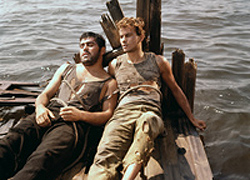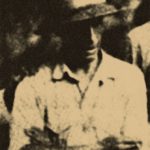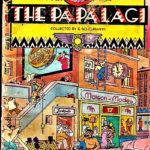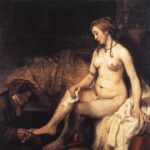The Death Ship was the first novel of the mysterious German writer B. Traven. The majority of Traven’s novels, on the surface adventure books set in his adopted homeland, Mexico, reveal the sources and conditions which spark revolt: The Treasure of the Sierra Madre, Rebellion of the Hanged, The White Rose, among others.


An Excerpt From The Death Ship (Das Totenschiff): The Story of An American Sailor, A Novel By B. Traven
Originally Published in German in 1926 by Büchergilde Gutenberg and English in 1934 by Alfred A. Knopf. Now available from Lawrence Hill Books.
While Stanislav was on the Yorikke, more than one coal drag had been taken, eaten, and digested by that can.
There was Kurt. He was from Memel territory, a part of Germany taken away from the Germans after the war, without any other justification than to bite away from Germany as much as possible. Nobody had any idea what to do with or whom to give this teritory. So it stayed independent.
When residents and natives of Memel had to make up their minds what nationality they wished to adopt, Kurt was in Australia. During the war he had not been molested very much by the Australians. The war over, he got homesick and wanted to return to Germany.
In later years, Traven wrote a number of books chronicling the exploitation of the native Indian population in Chiapas, Mexico. His books were honored in postwar Germany but they did not know he was Ret Marut, the condemned editor of the Spartacist newspaper. Condemned by the Social Democratic government after they cut a deal with the Prussian militarists under Paul von Hindenburg. Despite their “liberal” reputation, the Social Democrats agreed to eliminate the leftist Spartacist leadership. Reactionary forces such as the Freikorps were given free rein to murder Spartacist party leaders, Rosa Luxemburg and Karl Leibknecht. and to terminate other party members, including Marut (Traven). — ContraryPerspective
httpvh://youtu.be/FcR5NMkqXbY
Das Totenschiff (1959)
He had been mixed up with a strike. In a battle with strike-breakers one of those rats had been beaten up until he was left dead in the street. Kurt was supposed to have had a hand in this, and was sought by police. He could not go to the German consul. If he had done some damage to the Australian army, the consul would have done all in his power to help him out of the country. But being mixed up with a strike is a different thing. Laborers attacking the profits of capitalists are out. When a strike is to be quelled, all consuls work in unison, regardless if only a few months ago they would have rather liked to cut one another’s throats. The consul, doubtless, would have handed Kurt over to the Australian police, or at least tipped them off. A consul is always on the side of order and state authority. A strike is always against the state, if led by the workers. When led by the leaders, one is never sure in whose interest the strike has been declared.
Kurt could make England without any papers, being helped by members of the seamen’s union of Australia.
England is a tough spot, since it’s an island. An island is always tough. You can hop on it easily. But it is not at all easy to hop off again if you have to do so within a given time. Kurt found himself like in a cage. He could not get off again. He had to go see the consul. The consul wanted to know why he left Sydney, or Brisbane, or whatever town it was, without going to the German consul to get his papers in shape, and why, in particular, he had come to England illegally. Kurt could not tell his true story. He did not want to. England was in no way safer than Australia. The English would have sent him back to Australia without delay to go on trial there.
Stanislav could not remember exactly what town in England it was where Kurt had gone to see the German consul. When in the office of the consul, where everything, pictures on the wall, labels on the drawers and file cabinets, the homely voice of the consul, reminded him of his country, which he had not seen for so many years, Kurt began to cry. The consul took his tears as an expression of the hypocrisy of a bum who wished to gain something by unfair means. So the consul bellowed that he had better cut that comedy because it wouldn’t do him any good. Kurt gave him the only answer fit for such a situation. The German language is well provided for such needs. To make his meaning even clearer, Kurt took up an inkstand and hurled it against the consul’s head. The consul began to bleed at once and phoned right to the nearest police-station. Kurt did not wait for the police. He struck down the porter at the gate who wanted to hold him, and off he went, out into the street, making a clean get-away.
Kurt had made a mistake anyway in going to the consul. He should have known beforehand the consul could do nothing for him. He was from Memel, and since he had not adopted according to the regulations of the Treaty of Versailles, that masterpiece of the overwhelming stupidity of brilliant statesmen, no consul on earth could help him. He was neither German, not a citizen of this tiny little worm of a new nation that does not know, and never will know, what to do with herself. The consul was only a paid servant of the state. He had no power to help a lost sheep get on the road again.
So Kurt was dead now forever. Nevermore could he see his native country, his parents, his relatives. “All seems so strange and ghastly. But so it is. Let all the political wiseacres try to find out if such things do exist in modern civilization. Of course they won’t try, and dismiss even the thought of it by crying out loud that it’s an exaggeration if not a brazen lie,” Stanislav interrupted his tale.
To Kurt, a high official of state had said that his homesickness was only a bum’s comedy. A bum cannot be homesick. Refined feelings are reserved only for men and women far up in class, who can take from their drawers every day two fresh handkerchiefs, silk, if you please, or at least genuine Irish linen.
STORY: B. Traven: Underground Anarchist in the Mexican Jungle


I was homesick. I am homesick. All my struggling and roaming is but a dope to put to sleep my homesickness. It took me some time, and it cost me thousands of achings of my heart, before I learned in full that this thing which is supposed to be your native land, which God gave to you, and which no one, no emperor and no president, can take away from you, this homeland is today canned and put in files of passport departments and consuls’ offices. It is now truly represented only by officials with credentials, by men who have the capacity to destroy your true feeling for your country so thoroughly and so completely that no trace of love for your homeland is left in you. Where is the true country of men? There where nobody molests me, where nobody wants to know who I am, where I come from, where I wish to go, what my opinion is about war, about the Episcopalians, and about the communists, where I am free to do and to believe what I damn please as long as I do not harm the life, the health, and the honestly earned property of anybody else. There and there alone is the country of men and women that is worth while living for, and sweet to die for.
To Be Continued….
Ret Marut/B. Traven published the anarchist Munich newspaper Der Ziegelbrenner (The Brick-Burner) between 1917 & 1921. With the proclamation of the Republic of Bavaria, April 7, 1919, Marut worked with fellow anarchists Gustav Landauer and Eric Mühsam. The Republic was suppressed shortly thereafter and a terrible repression followed. Extracts of Der Ziegelbrenner were published in French in 1994, as “In the Freest State of the World.”
Updated 30 March 2020













Pingback: B. Traven's "Macario" - Magical Realism on Day of the Dead | WilderUtopia.com
Pingback: B. Traven: Underground Anarchist In The Jungle | WilderUtopia.com